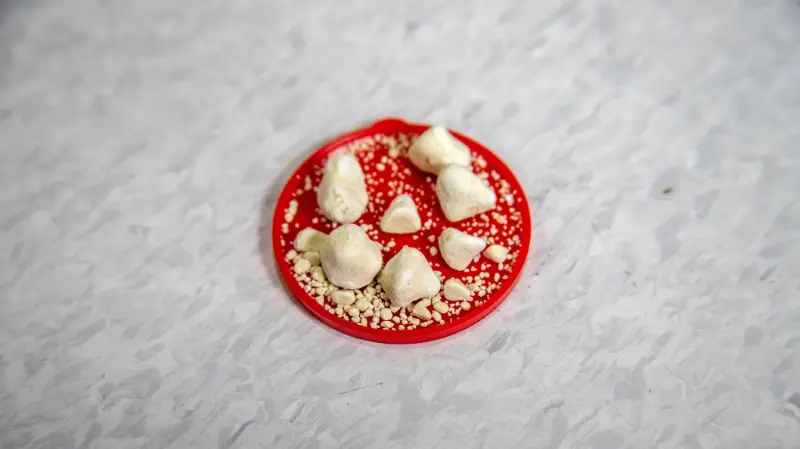Kidney stones — also called renal calculi — are one of the most painful yet common urinary tract problems.
There are several myths surrounding them — from “drinking milk causes stones” to “every stone needs surgery.”
Dr. Vinay Ausekar clears these myths and explains how early hydration, medical care, and modern minimally invasive surgery can manage stones effectively.

Myths and Facts about Renal Stones
| Myth | Fact |
|---|---|
| Drinking milk causes kidney stones | ❌ False. Calcium from milk actually binds oxalate in the intestine and prevents stone formation. |
| All stones require surgery | ❌ False. Small stones (below 5 mm) can often pass on their own with good hydration and medication. |
| Stones form suddenly | ❌ False. Stones develop gradually as minerals crystallize over weeks or months. |
| Drinking more water dissolves all stones | ⚠️ Partly true. Adequate hydration prevents early crystal hardening, but large stones need medical or surgical help. |
Symptoms of Renal Stones
- Severe pain in the back or flank, radiating to the lower abdomen or groin
- Burning sensation while urinating
- Blood in urine (hematuria)
- Frequent urination or urgency
- Nausea, vomiting, or restlessness during pain episodes
- Fever or chills if infection is present
If pain persists or fever develops, consult a urologist immediately.
How Stones Form in Urine
Urine carries minerals like calcium, oxalate, phosphate, and uric acid.
When urine becomes concentrated due to low fluid intake, these substances begin to crystallize and clump together, forming stones.
💧 Drinking 2.5–3 liters of water daily keeps urine diluted and helps flush out microcrystals before they harden.
Types of Kidney Stones (Explained Simply)
- Calcium Oxalate Stones (Most Common)
- Form when calcium combines with oxalate (from foods like spinach, nuts, chocolate, tea).
- Focus on reducing oxalate-rich foods rather than avoiding calcium.
- Milk and curd are safe and beneficial in moderation.
- Uric Acid Stones
- Seen in people with high uric acid levels, gout, or high-protein diets.
- Treated by controlling uric acid with medicines (like allopurinol) and alkalizing urine using potassium citrate.
- Struvite Stones
- Form due to chronic urinary infections.
- Usually require antibiotics and sometimes surgery.
- Cystine Stones
- A genetic condition leading to cystine crystal formation.
- Needs long-term monitoring and urinary alkalization.
Medical Management
🩺 Uric Acid Stones
- Reduce uric acid with medicines (e.g. allopurinol).
- Alkalinize urine (pH above 6.5).
- Drink plenty of fluids and limit red meat or seafood.
🧂 Calcium Oxalate Stones
- Limit oxalate-rich foods (spinach, beets, nuts, chocolate, tea).
- Maintain normal calcium intake — don’t avoid milk.
- Reduce salt and animal protein intake.
- Get regular urine metabolic evaluations for prevention.
Surgical Treatment for Renal Stones
When stones are large, obstruct urine flow, or cause repeated infections, surgery may be necessary.
Common Procedures
- URS (Ureteroscopy): A thin scope is passed into the ureter to break and remove stones.
- RIRS (Retrograde Intrarenal Surgery): Laser procedure using a flexible scope to remove kidney stones.
- PCNL (Percutaneous Nephrolithotomy): For large stones — done through a small incision in the back.
These are minimally invasive, stitchless procedures with quick recovery times.
What is a DJ Stent?
A Double J (DJ) Stent is a thin, soft tube placed inside the ureter (the passage between the kidney and bladder).
Purpose of DJ Stenting:
- Keeps the ureter open and allows urine to flow freely after surgery.
- Prevents blockage caused by swelling or small residual fragments.
- Reduces postoperative pain and infection risk.
- Usually removed after 1–3 weeks through a simple outpatient procedure.
Final Thoughts
Kidney stones are painful but preventable.
Stay hydrated, eat a balanced diet, and consult your urologist early for symptoms.
With modern laser and endoscopic techniques, treatment is now safe, effective, and minimally invasive.
Healthy kidneys start with healthy hydration.
Drink water — your kidneys will thank you!

About Dr. Vinay Ausekar
Services
- Kidney stone evaluation
- Prostate & urinary issues
- UTI management
- Endoscopic & laparoscopic urology
- Male infertility evaluation
